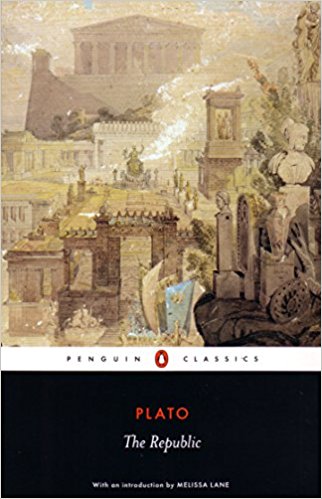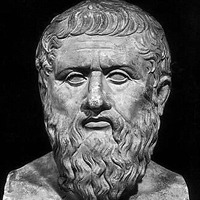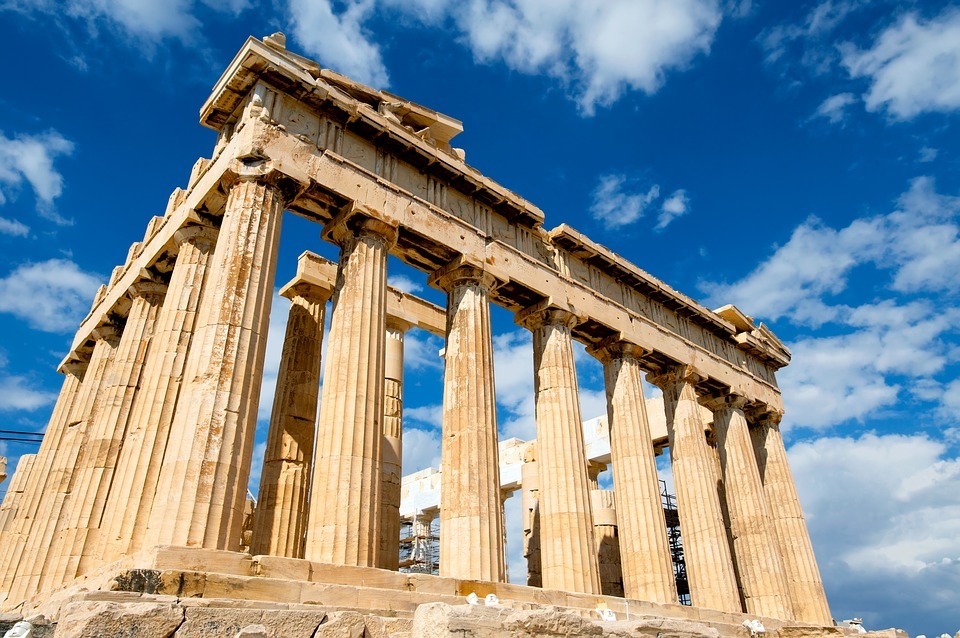The Republic Summary
6 min read ⌚
 In 1978, Alfred North Whitehead wrote that “the safest general characterization of the European philosophical tradition is that it consists of a series of footnotes to Plato.” And here we have the summary of his most famous work: “The Republic.”
In 1978, Alfred North Whitehead wrote that “the safest general characterization of the European philosophical tradition is that it consists of a series of footnotes to Plato.” And here we have the summary of his most famous work: “The Republic.”
Who Should Read “The Republic”? And Why?
This question has rarely seemed as futile and absurd as in this context. Because “The Republic” is quite possibly one of the ten most influential philosophical works in human history. So, you don’t have to be interested in history or politics to be interested in reading it.
It’s more than enough to express any kind of curiosity about justice, ethics, liberty, philosophy, governments, literature – or even books, for that matter.
About Plato
 Plato is widely considered to be the most fundamental philosopher in the history of the Western civilization. For all intents and purposes, it’s not an exaggeration to say that he is both the first self-conscious philosopher in human history and the one who has explored the widest range of subjects.
Plato is widely considered to be the most fundamental philosopher in the history of the Western civilization. For all intents and purposes, it’s not an exaggeration to say that he is both the first self-conscious philosopher in human history and the one who has explored the widest range of subjects.
Needless to add, he is also probably the most cited one; and the fact that his style is so poetically appealing makes him also one of the most memorable.
“The Republic Summary”
Just like the rest of Plato’s opera, “The Republic” is a dialogue. A Socratic one, in fact.
Meaning: its main character is Socrates (Plato’s teacher); and the philosophical ideas are presented by way of discussions between him and his arguers.
“The Republic” is mostly an elaboration of the ideal state, the beautiful city, Kallipolis. However, that is the case only because – Socrates claims – we can’t discuss justice or the just individual independently of the just society.
In fact, the real question posed to Socrates at the beginning of the book is much more problematic.
Namely, would a man who owns the Ring of Gyges – and, through it, the power to be invisible at will – will find the strength to be moral and just?
Socrates’ answer: yes. If the state hasn’t corrupted his innate goodness before that.
But, how would the state preserve it?
Obviously: through good organization.
And, according to Socrates (and Plato), a good state means a state-tailored to the needs of the individual. And since the soul of an individual has three parts, the state should have as many.
Which are these three parts?
First of all, we have the rational part. This is the golden part of our souls and the one which makes us ask questions such as “Who am I?”, “What am I doing here?” or “What is justice?” It’s the part interested in truth – and enamored with goodness.
Then, we have the spirited part of our soul. This is the silver part – the one who cherishes honor, but also the part who is responsible for our outbursts of anger and ire.
Finally, there’s the appetitive share of our soul, its bronze element.
This is the soul’s lowest part since it’s related to desires. And most of all to money – since it’s usually through them that we can satisfy our basest desires.
Now, each of these parts is dominant in different individuals.
 Craftsmen, for example, are mostly bronze-souled. Soldiers’ souls are dominated by its silver element. And, finally, the philosophers are those whose souls are more golden than anyone.
Craftsmen, for example, are mostly bronze-souled. Soldiers’ souls are dominated by its silver element. And, finally, the philosophers are those whose souls are more golden than anyone.
In other words, the philosophers are the ones who have gone the furthest in terms of personal development.
Analogously, city-states ruled by them should be the best possible societies for everybody.
Because the philosopher-kings would rule with reason and self-sacrifice, putting rationality first, and desires last.
And because they would always make the best decisions for everybody – and not just for themselves.
Now, according to Socrates, this type of government – which he calls aristocracy – is the best form of government. The best rule the rest. However, it’s only one of five different kinds.
The next best government is timocracy, which is run by the silver-souled soldiers and which puts honor first (a good example is Ancient Sparta). Third, in line – oligarchy, run by the bronze-souled and corrupt money-lovers.
Are you seating down?
The fourth best – or second worst – possible government is a democracy, where everyone has his or her own way, regardless of his or her qualities.
Finally, the worst type of government is tyranny. It is the antipode of the aristocracy, Namely, the worst rule the rest for their own benefit.
Key Lessons from “The Republic PDF”
1. Learn the Famous Allegory of the Cave
2. Lies Can Be Noble Too – If You Believe Plato, That Is
3. As for the Poets… Plato Says: Banish Them!
Learn the Famous Allegory of the Cave
Even if you don’t know anything about Plato, you must have heard something about his famous Allegory of the Cave. Well, you can find that allegory in “The Republic.” It’s both beautiful and unforgettable.
It concerns a group of people who’ve lived in a cave ever since their birth. Behind them, there’s a wall. And behind that wall, there are people who carry all kinds of objects. Behind these people, there’s a fire. (Here’s a better illustration of all this)
Everything the people of the cave can see on the wall are shadows of the puppeteers’ objects. And to them – these shadows are the reality.
When, in fact, there’s so much more to it. To Plato, that’s our whole world. It’s merely a shadow, a replica of some Ideal World somewhere out there.
The philosophers are those capable of leaving the cave and discovering the Forms of the Ideal World. Namely, those whose shadows are the reality of the rest of the people.
Lies Can Be Noble Too – If You Believe Plato, That Is
Alternate facts are nothing new. In fact, Plato talked about them at the very beginning of modern civilization. Strangely enough, he even endorsed them. Because, as far as he was concerned – lies can be good if they serve goodness.
That’s the whole idea behind the concept of the noble lie. It’s a myth which can supposedly make everybody better – if everyone believes in it.
Since then, many philosophers and thinkers have pointed out that, by proposing the concept of the noble lie, Plato gave ruthless leaders the best recipe for totalitarianism. Even the Holocaust was the final result of one such “noble” lie.
However, others find some more fundamental logic even behind this idea. After all, whether it’s the state, religion, or money – these are all noble lies which have to exist – to regulate our relationships.
As for the Poets… Plato Says: Banish Them!
Probably the most infamous part of Plato’s “Republic” is its last, tenth book. Because, among some other interesting things he says there, Plato also speaks about one which very few people would find any understanding for.
Namely, that there is no place for poets in the perfect society, Why poets of all people – you may ask.
Well, because they would corrupt the three classes. Producers will start dreaming that they can be something else; soldiers would cry over their verses; and philosophers would stop thinking rationally.
Talking about the power of poetry!
Like this summary? We’d like to invite you to download our free 12 min app, for more amazing summaries and audiobooks.
“The Republic” Quotes
The heaviest penalty for declining to rule is to be ruled by someone inferior to yourself. Share on X If women are expected to do the same work as men, we must teach them the same things. Share on X The beginning is the most important part of the work. Share on X The object of education is to teach us to love what is beautiful. Share on X Either we shall find what it is we are seeking or at least we shall free ourselves from the persuasion that we know what we do not know. Share on X
Our Critical Review
“The Republic” is an essential read: it’s one of the most important books ever written – by anyone, in any language, on any subject.
Thousands of thinkers have built upon it; and thousands more have developed their systems of thought by opposing it.
Either way, even two and a half millennia after it was originally written, it’s as thought-provoking and influential as ever.
And there are reasons for it practically on each and every one of its four hundred pages.
Emir is the Head of Marketing at 12min. In his spare time, he loves to meditate and play soccer.






